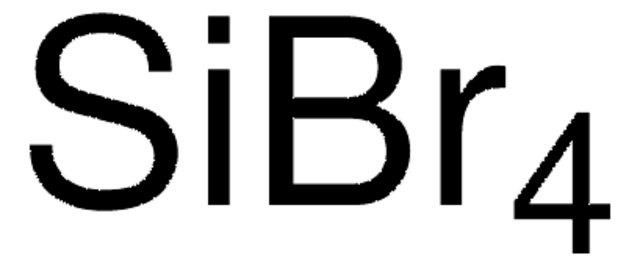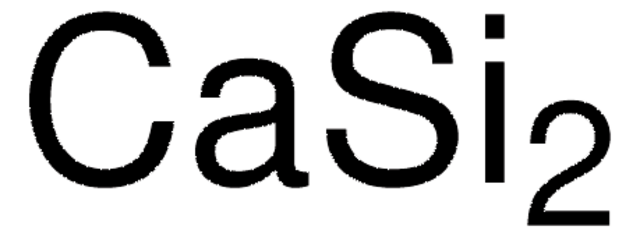249920
Silicon tetrachloride solution
1.0 M in methylene chloride
Sign Into View Organizational & Contract Pricing
All Photos(1)
About This Item
Linear Formula:
SiCl4
CAS Number:
Molecular Weight:
169.90
MDL number:
UNSPSC Code:
12352103
PubChem Substance ID:
NACRES:
NA.23
Recommended Products
vapor density
5.86 (vs air)
Quality Level
form
liquid
concentration
1.0 M in methylene chloride
density
1.34 g/mL at 25 °C
SMILES string
Cl[Si](Cl)(Cl)Cl
InChI
1S/Cl4Si/c1-5(2,3)4
InChI key
FDNAPBUWERUEDA-UHFFFAOYSA-N
Related Categories
Signal Word
Danger
Hazard Statements
Precautionary Statements
Hazard Classifications
Acute Tox. 4 Inhalation - Carc. 2 - Eye Dam. 1 - Skin Corr. 1A - STOT SE 3
Target Organs
Central nervous system
Supplementary Hazards
Storage Class Code
8A - Combustible corrosive hazardous materials
WGK
WGK 2
Flash Point(F)
Not applicable
Flash Point(C)
Not applicable
Choose from one of the most recent versions:
Already Own This Product?
Find documentation for the products that you have recently purchased in the Document Library.
Customers Also Viewed
Claudio Curti et al.
Organic letters, 13(17), 4738-4741 (2011-08-13)
Virtually perfect transmittal of the enolate reactivity up to five conjugated double bonds from the origin allows a series of furan-based silyloxypolyenes to add to aldehyde carbonyls at the most distant point of the molecule. Denmark's axially chiral bisphosphoramide/SiCl(4) combination
T Kapias et al.
Journal of hazardous materials, 81(3), 209-222 (2001-02-13)
Silicon tetrachloride is a toxic, corrosive water reactive substance that is used widely in the process industries. On spillage from containment it creates liquid pools that can either boil or evaporate. The main feature of the pool behaviour is the
Sherif Zein El Abedin et al.
Accounts of chemical research, 40(11), 1106-1113 (2007-05-25)
Due to their wide thermal windows, ionic liquids can be regarded as the missing link between aqueous/organic solutions and high-temperature molten salts. They can be employed efficiently for the coating of other metals with thin layers of tantalum, aluminum, and
J R Piascik et al.
Dental materials : official publication of the Academy of Dental Materials, 25(9), 1116-1121 (2009-04-21)
The overall goal of this research was to develop a practical method to chemically modify the surface of high strength dental ceramics (i.e. zirconia) to facilitate viable, robust adhesive bonding using commercially available silanes and resin cements. Investigation focused on
Roman A Sandler et al.
Journal of vision, 15(9), 16-16 (2015-08-01)
Receptive field identification is a vital problem in sensory neurophysiology and vision. Much research has been done in identifying the receptive fields of nonlinear neurons whose firing rate is determined by the nonlinear interactions of a small number of linear
Our team of scientists has experience in all areas of research including Life Science, Material Science, Chemical Synthesis, Chromatography, Analytical and many others.
Contact Technical Service








